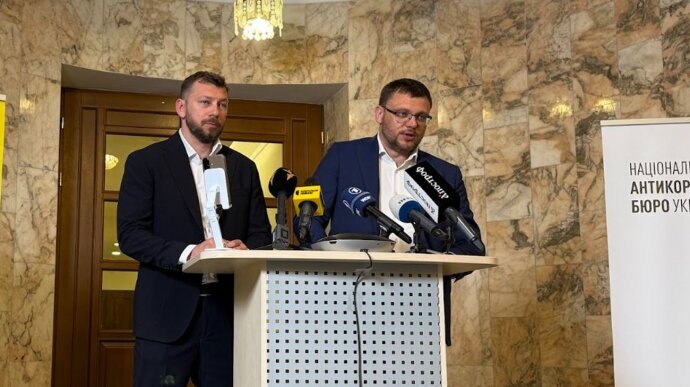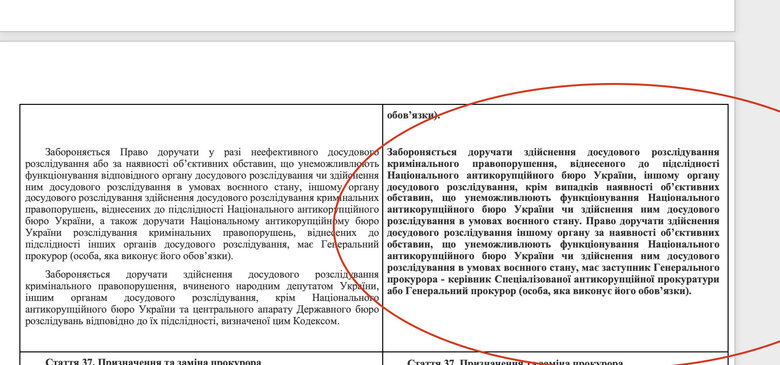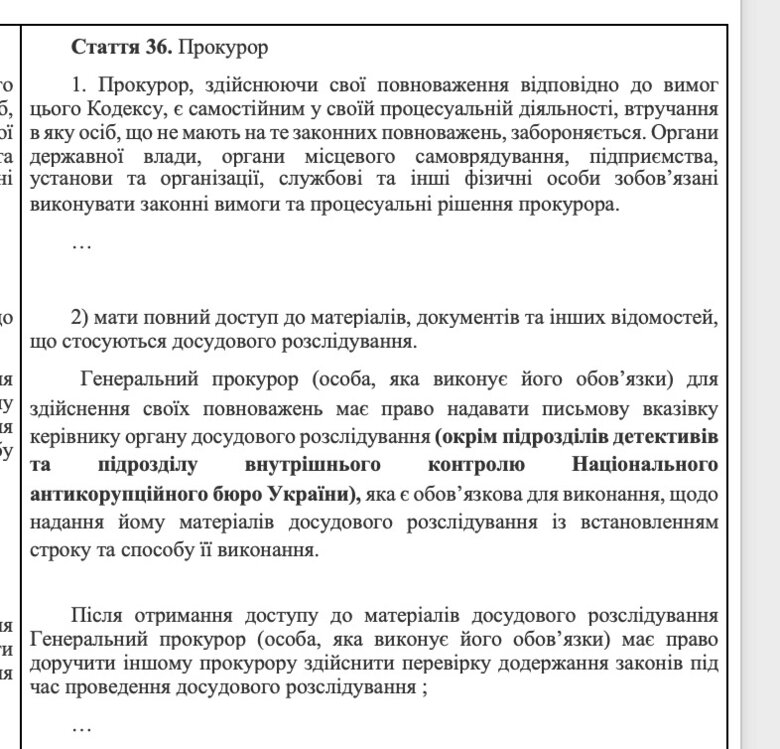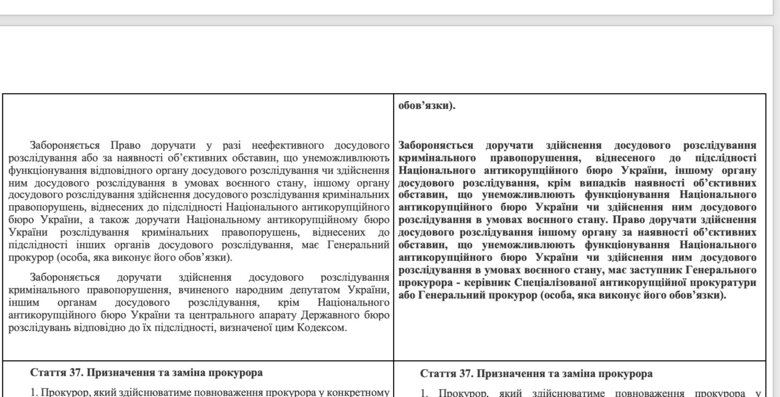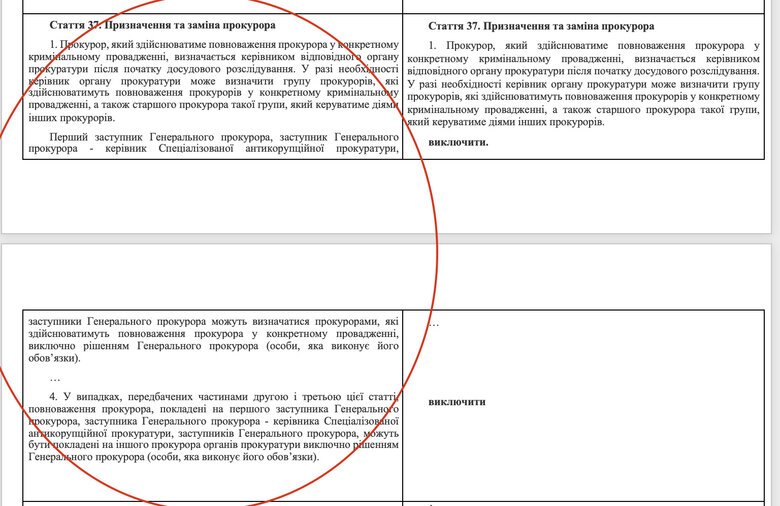Yermak’s multi-move strategy: NABU and SAPO on SSU detectors and Europe’s lost trust

The amendments to the Criminal Procedure Code, which destroyed the autonomy of the NABU and the SAPO, have not only led to the fact that for the second day in a row, crowded protests have been held in various cities of Ukraine (for the first time since the beginning of the full-scale war), but have also actually threatened Ukraine’s European integration.
On Wednesday, "European Pravda" published an article stating that for several months, European Union leaders have been working on a secret plan to override Hungary's veto and open European integration clusters to Ukraine. Ukrainians could have taken a step towards their goal as early as the end of summer.
But the vote in parliament on draft law 12414 put at risk not only the implementation of this ambitious plan, but also all partner assistance in general.
Throughout the years of the full-scale invasion, European partners have avoided any criticism of the Ukrainian authorities, knowing that doing so would increase the number of sceptics in their countries about helping Ukraine.
Moreover, sometimes European leaders were even openly irritated when civil society representatives spoke about the growing risks of corruption, mentioning how many anti-corruption bodies had been created and noting that this was not a priority in times of war.
But the President's Office's frontal attack on NABU and SAPO and the independence of their investigations turned everything upside down and became the last straw for internationals.
And while the European Commission simply reminded that it provides Ukraine with significant financial assistance "subject to progress in transparency, judicial reform and democratic governance" and that anti-corruption agencies "are crucial to Ukraine's reform programme and must operate independently", other statements were more categorical.
For example, the Organisation for Economic Co-operation and Development (OECD) warned the President's Office of the impact on defence investment and reconstruction funding due to the adoption of Law 12414.
"If [the issue arising from the adoption of the law] left unresolved it would not only risk undermining Ukraine’s OECD Anti-Bribery Convention accession prospects and its efforts to join the OECD, but also damage its credibility among international partners, particularly those considering investment in Ukraine’s defence sector and long-term reconstruction," emphasised Julia Fromholz, Head of the OECD Anti-Corruption Division
"If yesterday you thought that these statements were mild, today it sounded like they are actually stopping our European integration and funding. There have already been calls, including from President Macron or the German Chancellor. There was a call from the head of the European Commission," MP Yaroslav Zhelezniak said in his video blog.
Finnish Foreign Minister Elina Valtonen said that it was obvious that if Ukraine did not continue to fight corruption, its membership in the EU would be impossible.
It doesn't take a great analyst to guess that stopping financial aid when Ukraine's entire budget does not even cover the needs of the Ministry of Defence is a disaster for the state and a path to defeat.
As you know, the president signed the scandalous bill in a matter of hours. The procedure for destroying the independent anti-corruption investigation took only 5 hours. Opposition MPs assumed that this was done so that European partners did not even have time to formulate their position.
Instead, by Wednesday evening, the President was forced by pressure from international partners to announce that he was introducing a bill restoring the autonomy of the NABU and the SAPO, and that the Verkhovna Rada would break its recess to vote on it.
By Thursday evening, the bill was already in the Verkhovna Rada.
What does it provide for? Most of the destroyed positions on the autonomy of the NABU and SAPO investigations are being restored.
- NABU detectives follow the instructions of SAPO prosecutors only, not all prosecutors or the Prosecutor General (Article 40 of the CPC).
- The Prosecutor General can no longer give instructions to the head of the NABU pre-trial investigation body or its internal control unit (Article 36 of the CPC).
- The Prosecutor General is prohibited from transferring proceedings from the NABU's jurisdiction to other bodies (Article 36 of the CPC) - the only exception is in case of objective impossibility of the NABU's functioning in wartime, and then only with the permission of the Head of the SAPO.
The rights of the SAPO prosecutor have also been expanded:
- Now the SAPO is directly vested with the status of the head of the prosecution body, not just an internal unit (Articles 3 and 8-1 of the Law of Ukraine "On Prosecutor Office").
- The head of the SAPO can independently determine jurisdiction, give instructions, approve agreements, replace prosecutors in a case, and determine groups of prosecutors (Articles 36, 37, 216 of the CPC).
- The agreement with a suspect in NABU cases now requires only the approval of the SAPO, without the mandatory participation of the Prosecutor General (Article 470 of the CPC).
However, this draft law also contains certain risks that may undermine the independence of NABU and SAPO.
For example, the Prosecutor General retains the right of "general control" (he had it before 21 July, and it hasn't gone away!). As a result, he can receive materials of any investigation, even in NABU/SAPO cases. In other words, he cannot formally give instructions, but the very fact of access makes it possible to know "what we have on the person of interest".
The Prosecutor General can also initiate a review of the legality of the NABU's actions. In particular, after receiving the materials, the Prosecutor General may instruct another prosecutor to check the legality of the actions in the case, although he cannot intervene directly (Article 36 of the CPC).
The Prosecutor General also holds the trump card in case of disputed jurisdiction. If you have forgotten, for example, the case of the scandalous "eggs for 17" was investigated by both the SBI and the NABU. But you remember much better that Ihor Kolomoisky was investigated by the SBI, NABU and the SSU at the same time.
According to the new version of Article 218 of the CPC, a dispute over the jurisdiction of cases related to the NABU is resolved by the Prosecutor General or the head of the SAPO. However, the joint competence here may provoke a conflict.
It should also be noted that the draft law contains a number of new provisions that strengthen the control over NABU detectives by the SSU.
In particular, it provides for mandatory polygraph examinations every two years for NABU employees who have access to state secrets. They are carried out by the NABU's internal control unit according to the SSU's methodology (clause 2 of the Final Provisions).
In addition, the SSU has been given the opportunity to check NABU employees for possible cooperation with Russia within 6 months (clause 3 of the Final Provisions).
We would like to believe in the integrity of all parties, but theoretically, the checks can be used as a tool for the SSU to influence the NABU.
As a cherry on top, the Final Provisions also instructed the Prosecutor General and the Minister of Justice to intensify their efforts to find people who have fled criminal proceedings. Here, of course, we have a whole flower garden, starting with Komarnytskyi and Boholiubov and ending with Dmytruk and Trubitsyn.
What do we have in the end? The majority law rehabilitates the independence of the SAPO and NABU after previous restrictions. The Prosecutor General mostly retains the old levers of influence on the investigation - through inspections, disputes over jurisdiction and access to materials. At the same time, the SSU inspections create the effect of at least psychological pressure, although they may have objective grounds in the context of war.
As of the evening, the NABU and the SAPO expressed satisfaction with the amendments in principle.
There is no date for the Council's meeting yet. According to Censor.NET's interlocutors in the parliament, international partners will first read the text. It is known that even the British Prime Minister, Keir Starmer, noted that experts should be involved in the preparation of the bill. This was a veiled expression of distrust of the Ukrainian government.
At the same time, we still have a great opportunity to figure out who we owe more than just the scandal to. Because so far, there has been more talk about Buzhanskyi, who made the amendments, and Davyd Arakhamia, who collected the votes.
For example, MP Yaroslav Zhelezniak believes that the key role here belongs to the head of the President's Office, Andrii Yermak.
According to him, Yermak has allegedly been "selling" the president that he has influence over the NABU for a very long time. As it is known, after the appointment of Semen Kryvonos, there was much talk that he would be loyal to the head of the OP. Later, in the midst of the scandal surrounding the leaks from NABU and Gizo Uglava, a version emerged that it was the Deputy Director who "sold" the new NABU head to the Office as a "suitable guy".
However, according to a "Voice" MP, Yermak may indeed have had information from the NABU, but in the end he did not have decisive influence. And recently, this has become critical. The fact is that the NABU cases have affected people close to the Presidential Administration, such as Pavlo Kyrylenko, the head of the AMCU, and now those directly close to Zelenskyy, including the sponsor of "Kvartal", Tymur Mindich, and former Deputy Prime Minister Oleksii Chernyshov.
"He could have leaked information about people he didn't like. But he couldn't stop them (NABU) if they were investigating people Andrii Yermak liked. And this situation somehow started to get out of control," Zhelezniak says.
In the MP's version, Yermak did not seem to object to the investigation of Mindich, with whom he had a less than good relationship, but this began to raise questions among the president about what the head of his office was playing at.
"It was then that the first part of this plan was implemented, when Andrii Yermak, in fact, very quickly, in a blitzkrieg, without coordinating it (with others), and I am convinced of this, as I heard from other journalists who said the same thing, Ruslan Kravchenko was appointed," the MP said in his video blog.
"And they say that one of the agreements between Yermak and the President that Yermak would appoint his man to the post of Prosecutor General was that Yermak would then construct control over NABU and SAPO under the Prosecutor General. In this way, he would keep all those important people who need to be kept," Zhelezniak said.
At the same time, as Censor.NET's sources have already said, in this story, Yermak strongly disagreed with his deputy Oleh Tatarov, who, although involved in the NABU and SAPO story, but to a much less extent.
Moreover, Tatarov is said to be offended by the story with the Prosecutor General, because "he was played over his head".
There are a lot of other ingredients mixed up in this story:
- The partners' absolutely weak reaction to the disruption of the appointment of the BES head and the suspicion of activist Vitalii Shabunin;
- rumours that not only Mindich's relative, but also the sponsor of "Kvartal", in whose apartment the president lived, and one of the former deputy heads of the OP (Rostyslav Shurma is already in mind) would be served with a suspicion notice;
- "A number of factors came together - from the president's dislike of external influence to
Yermak's understanding that he does not influence the NABU, but one of his opponents is on friendly terms with them," Censor.NET's interlocutors say. - One way or another, this story has cost Ukraine and the trust of its international partners a lot. І
even if we fix it, we will not fix all its consequences.
One way or another, this story had cost Ukraine and its international partners' trust in it dearly. And even if we fix it, we will not fix all its consequences.
Whoever came up with this scheme, responsibility for it lies with those who voted for it and those who signed it.
Tetiana Nikolaienko, Censor.NET

